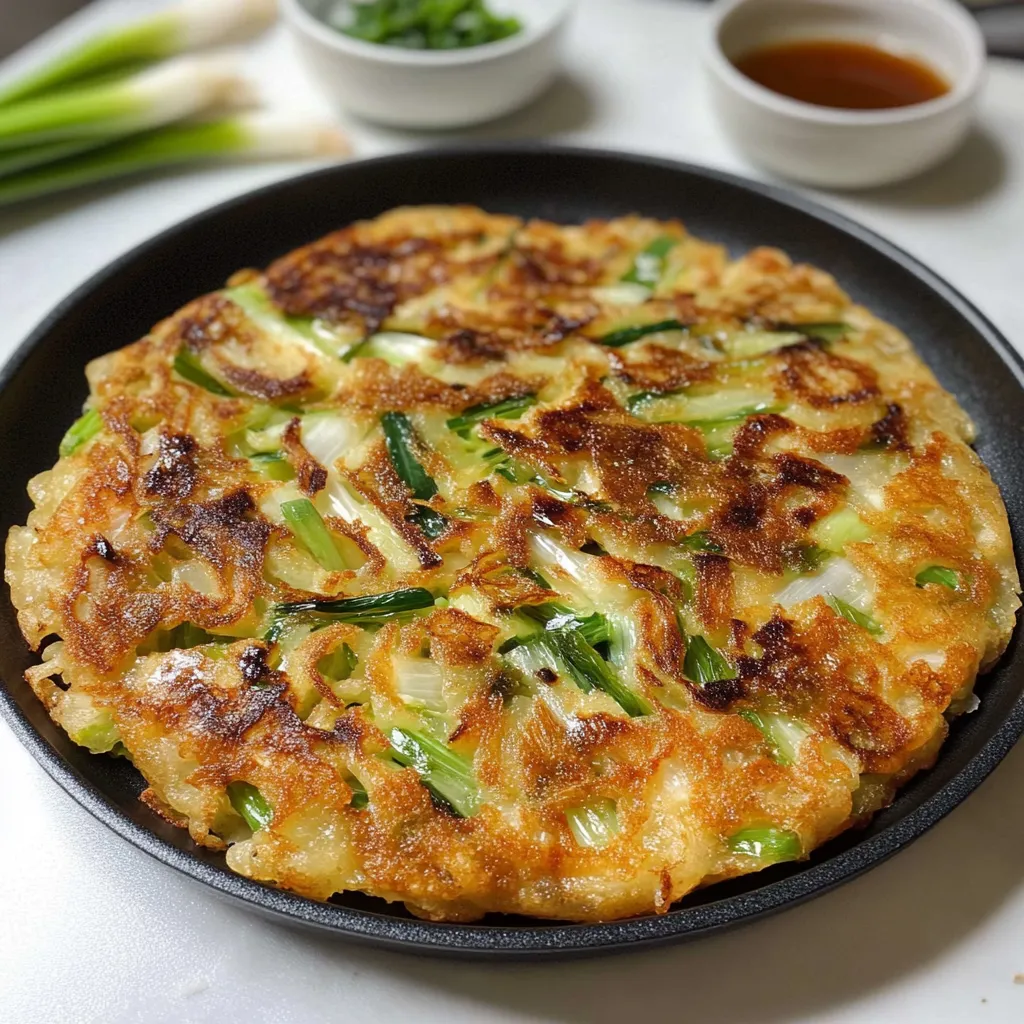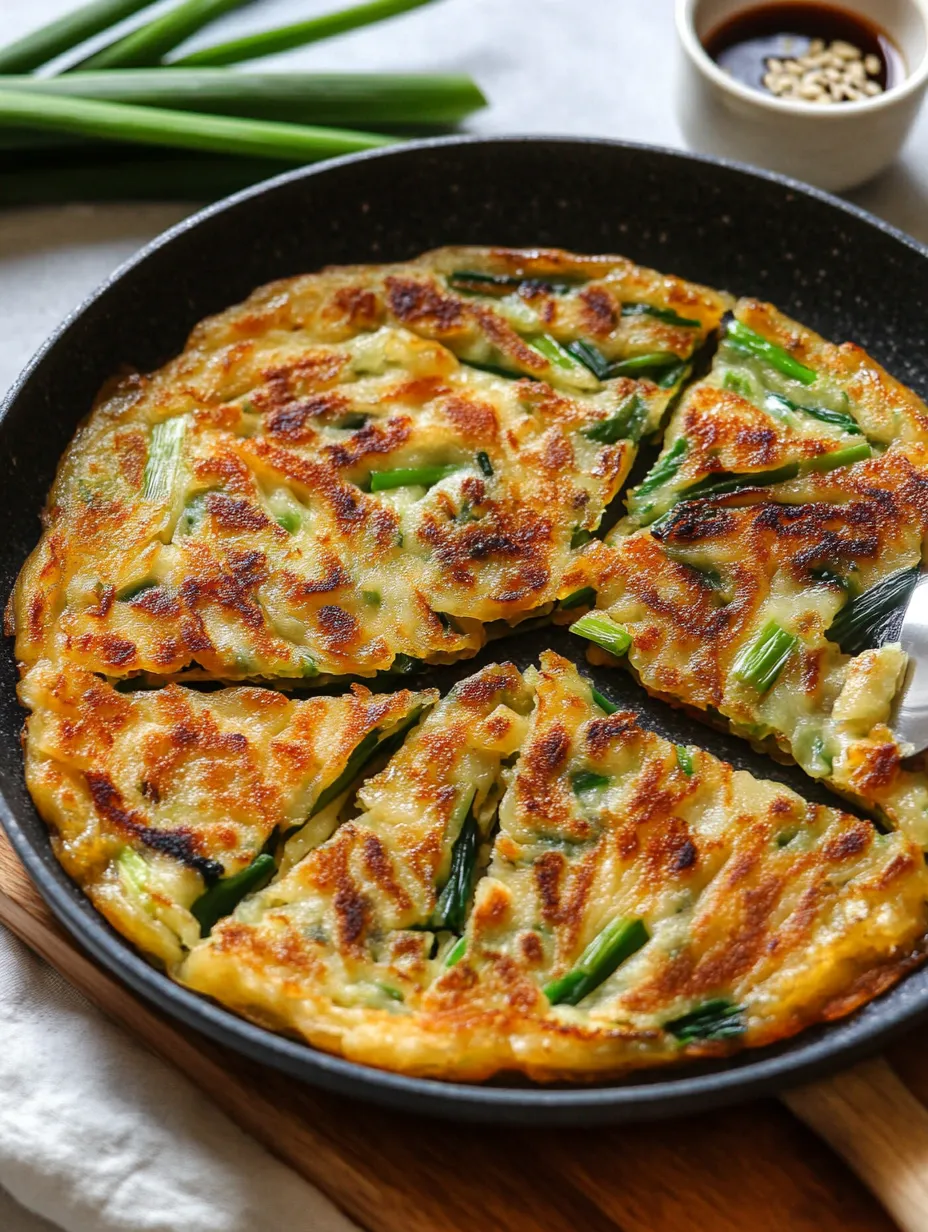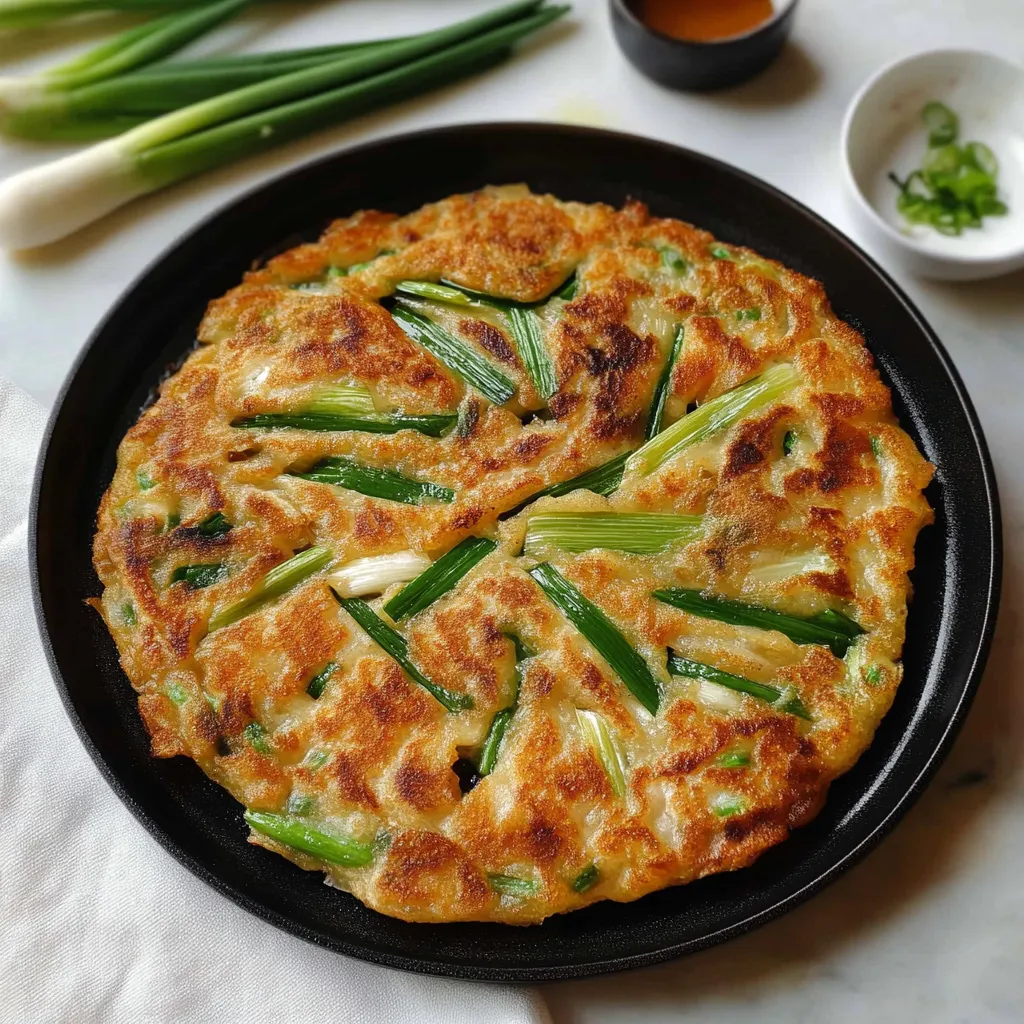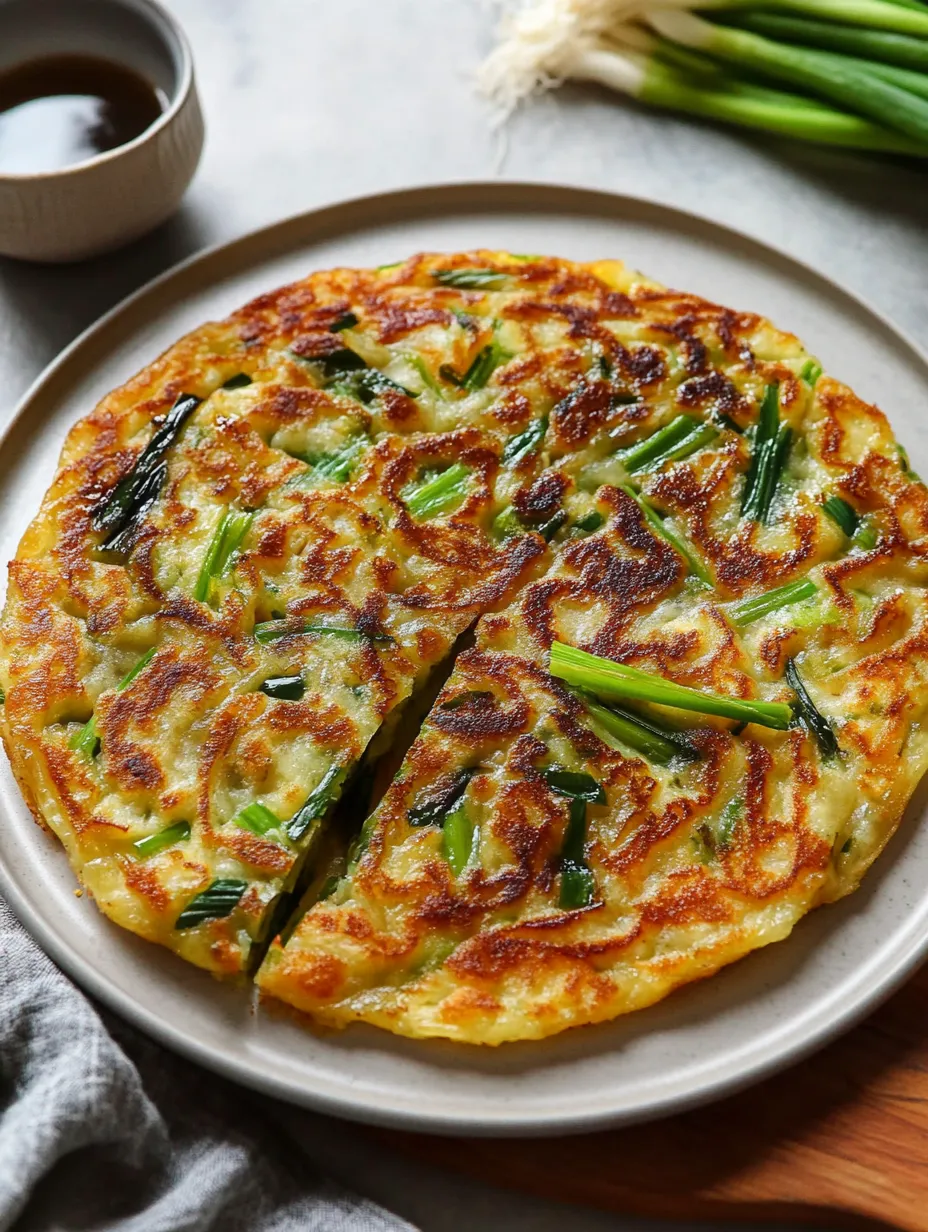 Pin it
Pin it
Pajeon is the perfect mix of crispy yet chewy Korean green onion pancakes that bring amazing taste with little work. Full of fresh scallions and eaten with a zingy soy dipping mix, this tasty snack turns basic stuff into something special. I first tried pajeon at a tiny Korean place on a wet day, and it's been my comfort food pick ever since, great as a starter or small meal.
I made these for a small dinner with friends last week, and my buddy who spent three years living in Seoul told me they were the most real homemade pajeon she'd ever had. The trick? Don't hold back on the oil and make sure your water is super cold for the mix.
Key Ingredients and Smart Picking Tips
- Scallions: Pick bright, fresh ones without yellow parts for top flavor
- Potato Starch: Gives that special chewy-crunchy feel (you can use cornstarch if needed)
- Baking Powder: The hidden helper for extra crunch that many people forget
- Chicken Bouillon Powder: Brings rich taste without needing tons of extra stuff
- Super Cold Water: Nearly freezing water makes steam while cooking, giving you a lighter pancake
- Plain Oil: Go for something that can take high heat like veggie or avocado oil
Step-by-Step Cooking Guide
- Get Scallions Ready: Clean them well and dry completely - wet onions make floppy pancakes. Cut thick white parts down the middle and then into 1.5-inch bits. This makes eating easier and helps everything cook the same.
- Blend Dry Stuff: Put flour, potato starch, baking powder, salt, bouillon powder, garlic powder, and onion powder in a bowl with scallions. Pour in ice-cold water and stir just until mixed - too much stirring makes tough pancakes.
- Get Pan Hot: Take a big non-stick pan over medium-high heat with plenty of oil (about 2.5 tablespoons). The oil should gently shimmer but not smoke. Good heating stops sticking and makes things crispy.
- Put Scallions Down First: Drop scallions into hot oil, spread them out evenly before pouring mix on top. This way gives you a pancake where you can see the onions and gets better texture than just mixing it all together.
- Cover Onions With Mix: Pour the rest of the batter over your arranged onions, filling any spaces. Gently move the pan to make an even layer without messing up your onion pattern.
- Watch Your Heat: Turn down to medium and cook until the bottom turns golden with tiny bubbles all through it, about 3 minutes. Right heat makes sure the pancake cooks inside without burning outside.
- Flip It Boldly: Wait till the pancake is firm and golden before trying to flip. Use a big spatula and flip in one smooth move. Add the last bit of oil around the edges after flipping.
- Push Down For Crunch: Sometimes press down with your spatula while cooking the second side to get more contact with the pan, making crunchier texture.
- Cut And Eat Right Away: Move to a cutting board and slice into squares or wedges. Eat while hot for maximum crunch.
- Make Easy Dipping Sauce: Mix soy sauce, rice vinegar, sesame oil, and chopped scallions. This tangy-savory combo goes perfectly with the pancake.
 Pin it
Pin it
A Korean friend laughed at my first pajeon try and taught me about patience. "You gotta wait," she told me, "until you see golden edges. Hurrying just breaks pancakes."
 Pin it
Pin it
Traditional Serving Ideas
In Korea, people love eating pajeon on rainy days, often with makgeolli (rice wine). There's something really nice about munching on crispy, savory pancakes while sipping fizzy, slightly sweet wine and listening to rain. I've started doing this too, keeping pancake stuff ready for stormy nights when I want something comforting.
Mix It Up With Different Options
What I really dig about this dish is how easy it is to change. While the regular version focuses on scallions, you can throw in other stuff you've got around. Sometimes I add thin sliced mushrooms or bright bell peppers for more nutrients and eye appeal. For a bigger meal, try adding small cooked shrimp or squid pieces to make haemul pajeon (seafood pancake), another Korean favorite that turns this simple food into something more filling.
Food That Connects
Making pajeon links me to Korean food traditions that care about simplicity and balance. This basic pancake shows up at family get-togethers, street food stands, and restaurant menus all over Korea - loved by folks of all ages and backgrounds. The way everyone shares pieces of the pancake shows the Korean value of eating together. Every time I cook this, I'm joining a food custom that's brought people together for ages.
 Pin it
Pin it
Wrapping Up
These crunchy pancakes have become my trusted solution when I need a fast but impressive dish. The exciting sizzle when the mix hits hot oil, the amazing smell of cooking scallions, and that first perfect bite with tangy sauce create an experience way better than you'd expect from such simple ingredients. The cool thing about pajeon is how it turns basic stuff into something awesome through good technique. It reminds me that cooking doesn't always need fancy ingredients or complicated steps - sometimes the best foods come from getting the basics right and paying attention to small details that really matter.
Last Tips:
- For no gluten, switch all-purpose flour with rice flour or gluten-free mix
- Make your dipping sauce first so flavors can blend while you cook
- Leftover pajeon heats up great in an air fryer at 350°F for 5 minutes
- For a nicer look, save some green tops to sprinkle on fresh-cooked pancakes
- Make twice as much and freeze uncooked batter portions for quick future meals
Frequently Asked Questions
- → Why put water in the batter?
- Using cold water keeps it crispy when fried.
- → Can I swap the starch?
- Stick to potato or corn starch; others won't work well.
- → Why pat the scallions dry?
- Dry onions give you a crisp, golden pancake.
- → Is it okay to prep early?
- Serve right away for the best crispy texture.
- → What pan should I use?
- A big non-stick pan works best for even frying.
